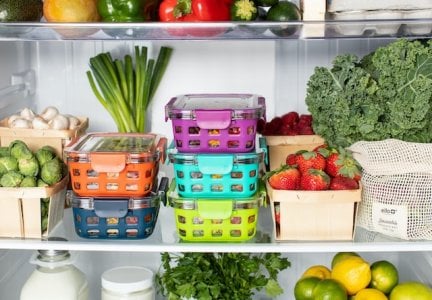Stop these common fridge errors from draining your budget!
By
Seia Ibanez
- Replies 12
It’s a common sight in most Aussie households: the refrigerator humming away in the background.
Did you know that using it wrong could be costing you and your family a lot of money each year?
According to a team of researchers at RMIT University, not 'interacting' with your refrigerator in the way manufacturers intended could be leading you to throw money away, with a side of food waste.
According to Dr Bhavna Middha, only a few households were aware that they needed to adjust the appliance’s temperature settings to keep food safe.
‘Not many people regulated their refrigerators after it had been open for a while, or if it got hot during the summer, or if they’d loaded it with a week’s groceries,’ she said.
The focus of the study was red meat. Red meat is one of the most wasted foods nationwide, with households throwing away over 140,000 tonnes each year.
When the researchers conducted in-depth interviews and looked inside refrigerators around Australia, they also analysed how people were storing their produce. They found 17 per cent of the thousands of refrigerators they inspected were either too hot or too cold.
‘When food is too warm, bacteria multiply too fast. When food is too cold, it can freeze or get freezer burn. Both conditions lead to food spoiling,’ Dr Middha said.
They also discovered inconsistencies across different refrigeration shelves—recording temperatures between ten degrees and -1.1 degrees. Such findings are concerning, as Food Standards Australia and New Zealand recommend hazardous foods must be kept below five degrees.
Another problem with food waste was that people were over-catering for functions. Reports say that households throw away large amounts of food at the end of events because they don’t know how to safely store it.
Many households also avoid freezing food, like red meat, because they worry about it impacting taste, or they find it inconvenient to thaw.
Since red meat production makes up 12 per cent of Australia’s net greenhouse gas emissions, Dr Middha believes everyone should waste less food for the good of the environment
Dr Middha also wants to see the shared responsibility of solving the problem among refrigerator manufacturers, food producers, the government, and consumers.
So, if you want to save yourself time, money, and energy to prevent waste, here are some simple changes:

Do you have any tips and tricks on preventing your food from spoiling? Share them in the comments below!
Did you know that using it wrong could be costing you and your family a lot of money each year?
According to a team of researchers at RMIT University, not 'interacting' with your refrigerator in the way manufacturers intended could be leading you to throw money away, with a side of food waste.
According to Dr Bhavna Middha, only a few households were aware that they needed to adjust the appliance’s temperature settings to keep food safe.
‘Not many people regulated their refrigerators after it had been open for a while, or if it got hot during the summer, or if they’d loaded it with a week’s groceries,’ she said.
The focus of the study was red meat. Red meat is one of the most wasted foods nationwide, with households throwing away over 140,000 tonnes each year.
When the researchers conducted in-depth interviews and looked inside refrigerators around Australia, they also analysed how people were storing their produce. They found 17 per cent of the thousands of refrigerators they inspected were either too hot or too cold.
‘When food is too warm, bacteria multiply too fast. When food is too cold, it can freeze or get freezer burn. Both conditions lead to food spoiling,’ Dr Middha said.
They also discovered inconsistencies across different refrigeration shelves—recording temperatures between ten degrees and -1.1 degrees. Such findings are concerning, as Food Standards Australia and New Zealand recommend hazardous foods must be kept below five degrees.
Another problem with food waste was that people were over-catering for functions. Reports say that households throw away large amounts of food at the end of events because they don’t know how to safely store it.
Many households also avoid freezing food, like red meat, because they worry about it impacting taste, or they find it inconvenient to thaw.
Since red meat production makes up 12 per cent of Australia’s net greenhouse gas emissions, Dr Middha believes everyone should waste less food for the good of the environment
Dr Middha also wants to see the shared responsibility of solving the problem among refrigerator manufacturers, food producers, the government, and consumers.
So, if you want to save yourself time, money, and energy to prevent waste, here are some simple changes:
- Have better shelving to improve visibility inside appliances
- Get compartments suitable for storing meat
- Food manufacturers should provide more resealable packaging to prevent food from spoiling.
Key Takeaways
- Aussie families could save more each year by wasting less food, particularly by altering their use of refrigerators.
- An RMIT University-led research found that improper refrigerator ‘interaction’, such as not adjusting temperature settings, leads to food spoilage.
- The study found many inconsistencies in refrigeration temperatures across different shelves and reported that 17 per cent of refrigerators were either too hot or too cold.
- The research suggests that shared responsibility between fridge manufacturers, food producers, the government and consumers could help in waste reduction and, thus, saving money.
Do you have any tips and tricks on preventing your food from spoiling? Share them in the comments below!









